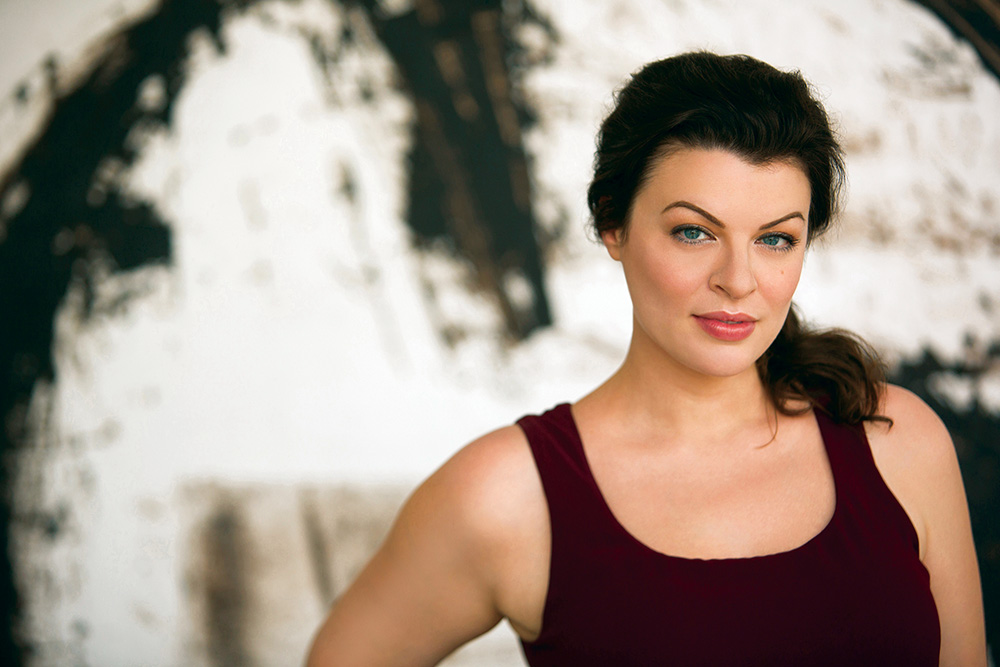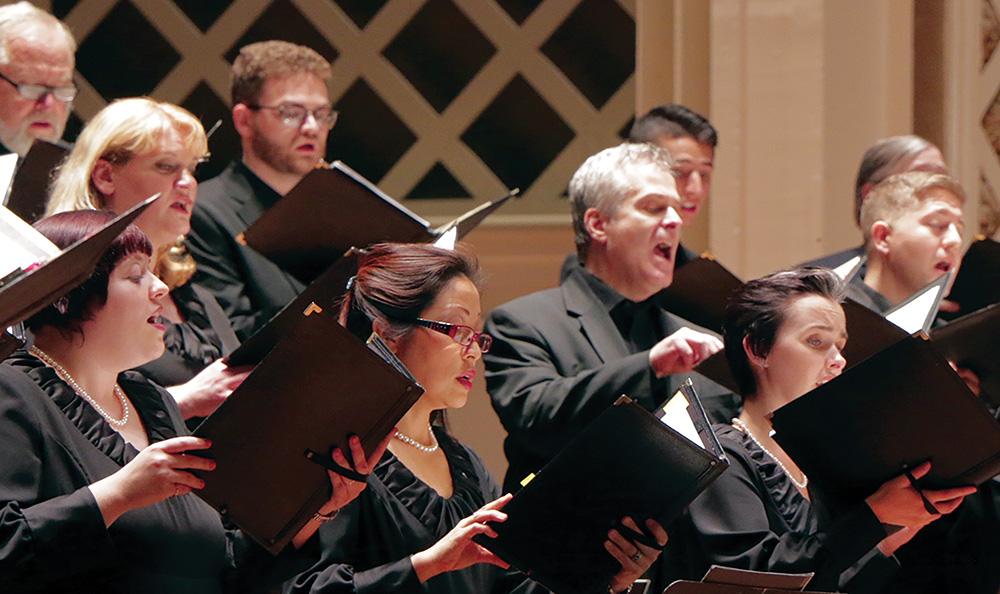A Conversation with
Composer Julia Adolphe
Composer Julia Adolphe
by Ken Smith
Julia Adolphe doesn’t compose briskly even in normal conditions—New Yorker critic Alex Ross pointed out after the premiere of Unearth, Release that it took her a year to write 19 minutes of music—but the past two years were particularly fraught.

Having started Paper Leaves on Fields of Clay for the CSO in September 2019, Adolphe had worked on it for nearly five months when the pandemic brought the world to a standstill. “I was completely paralyzed,” says Adolphe by phone from her home in Nashville, where she and her partner, the singer-songwriter Zach March, relocated from Los Angeles last April. “No one knew how long the pandemic would continue, and the premiere hadn’t been postponed yet. I was still trying to meet my deadline, but could barely show up at my desk.”
Meanwhile, everyone in Cincinnati remained very supportive, she says, particularly after the original May 2020 premiere was rescheduled. “They said to take my time and not worry,” she recalls. “And Louis remained particularly involved in the writing process.” Langrée was regularly in contact to offer feedback, and when she was writing extended solos for clarinet and trumpet, the conductor put her in touch with those musicians directly.
“Basically, a whole year went by,” she admits. “I had only a couple of minutes left to finish, but it took me all that time, mostly to reconnect with what the piece was about. I mean, I was writing about this joy and revelry in nature, the childlike sense of discovery and play, and it was very hard to feel that sense of carefree abandon.”
Only by getting up and watching the sunrise—“Something I never do in normal life,” Adolphe exclaims—could she find the peace to compose. “Maybe it would be only 15 minutes before the news or my anxieties would interrupt,” she adds, “but it helped me get back to that creative dream-space.”
Another crucial factor was creating LooseLeaf Notebook, a podcast and video series Adolphe started in July 2020 to explore connections between creativity and mental health. “I needed an outlet for my creative energies, and this allowed me to connect with my peers in a way that felt timely,” she explains. “The pandemic amplified many of our pre-existing issues, so once I started sharing my own experiences, it was great to hear from others. It made me feel connected and grounded in ways I was missing, and it finally got me back to composing.”

Adolphe’s Paper Leaves on April 8 and 9 will mark the composer’s third world premiere in Greater Cincinnati, following two earlier May Festival commissions. Listeners who recall her Sea Dream Elegies for chorus, oboe and cello in 2016 (at Covington’s Cathedral Basilica of the Assumption, James Conlon conducting) or Equinox, Adolphe’s a cappella work from 2017, will note an obvious lack of text in her new work, but its musical nature will be much the same.
“My process in writing for instruments or setting a text is very similar,” she says. “I have a narrative and an emotional arc in my head, very clear characters—the trumpet and clarinet are definitely the protagonists here—and a story linked to my personal life that I purposely don’t share because I don’t believe that’s the point. The point is the music, and I want other people to read into it whatever they want.”